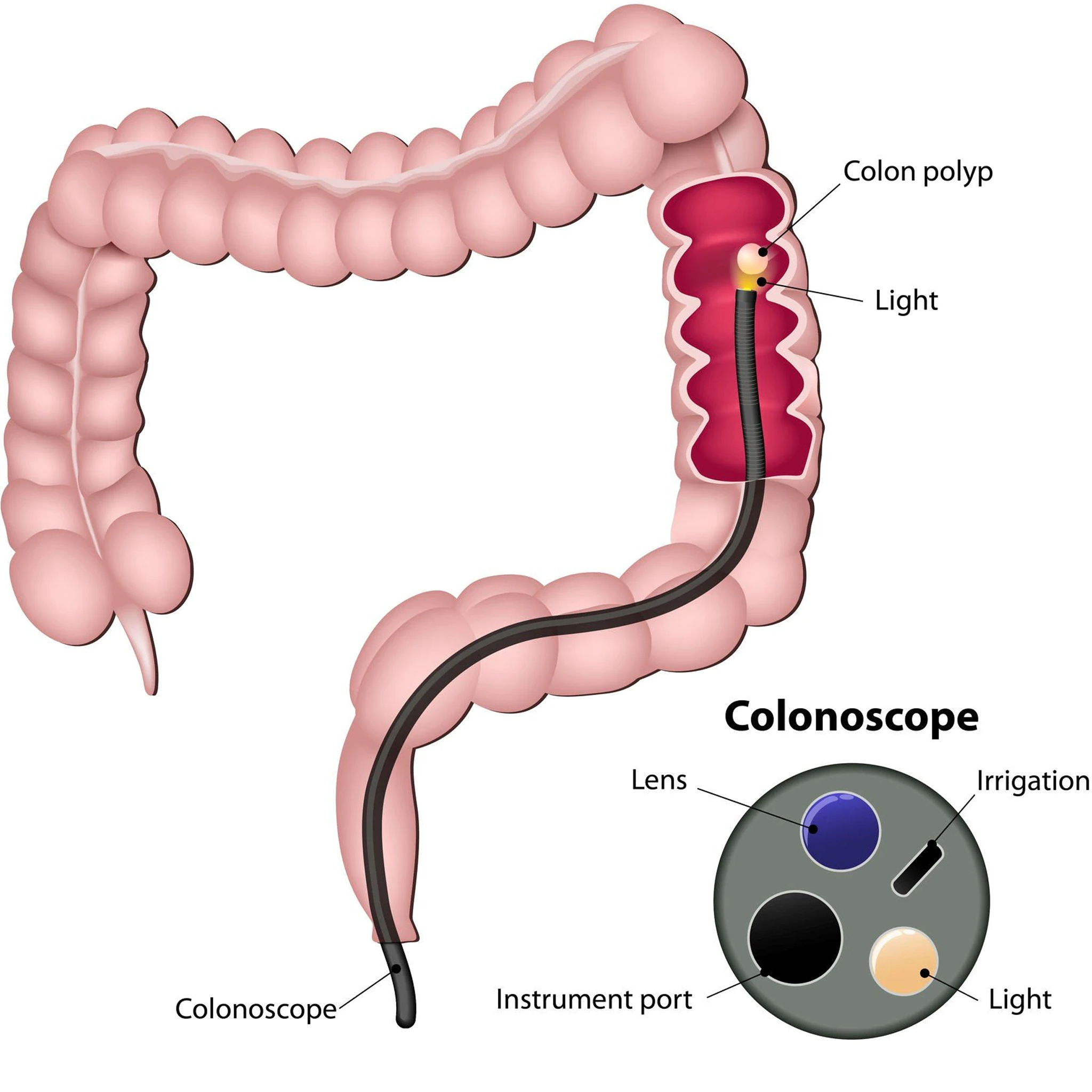Colonoscopy is a common, safe test to examine the lining of the large bowel. During a colonoscopy, doctors who are trained in this procedure (endoscopists) can also see part of the small intestine (small bowel) and the end of the GI tract (the rectum). This procedure is often done under sedation to assure maximal patient comfort. During a colonoscopy, the endoscopist uses a flexible tube, about the width of your index finger, fitted with a miniature camera and light source. This device is connected to a video monitor that the doctor watches while performing the test. Various miniaturized tools can be inserted through the scope to help the doctor obtain samples (biopsies) of the colon and to perform manoeuvres to diagnose or treat conditions. Colonoscopy can detect and sometimes treat polyps, colorectal bleeding, fissures, strictures, fistulas, foreign bodies, Crohn’s Disease, and colorectal cancer. An examination of the inside of the colon, including the rectum, sigmoid colon, descending colon, transverse colon, ascending colon, and cecum (where the small bowel attaches to the large bowel), using an endoscope – a thin, lighted flexible tube inserted through the anus. Dr. Nachiket Dubale provides Colonoscopy Treatment in Pune which is a common, safe test to examine the lining of the large bowel.
Colonoscopy might be improved the situation for an assortment of reasons. Most by far of colonoscopies are executed as a component of screening programs for colon malignant growth. At the point when improved the situation different reasons, it is frequently done to research the reason for blood in the stool, stomach torment, looseness of the bowels, an adjustment in entrail propensity, or a variation from the norm found on colonic X-beams or a mechanized hub tomography (CT) examine. People with a past history of polyps or colon malignant growth and certain people with a family ancestry of a few kinds of non-colonic diseases or colonic issues that might be related to colon disease, (for example, ulcerative colitis and colonic polyps) might be encouraged to have occasional colonoscopies on the grounds that their dangers are more prominent for polyps or colon malignant growth. How frequently should one experience colonoscopy relies upon the level of the hazard and the variations from the norm found at past colonoscopies? One broadly acknowledged proposal has been that even sound individuals at typical hazard for colon malignancy ought to experience colonoscopy at age 50 and like clockwork from there on, to remove colonic polyps previously they wind up destructive.
To get appropriate consultation and treatment with regards to Colonoscopy Treatment in Pune meet Dr. Nachiket Dubale.
